common good

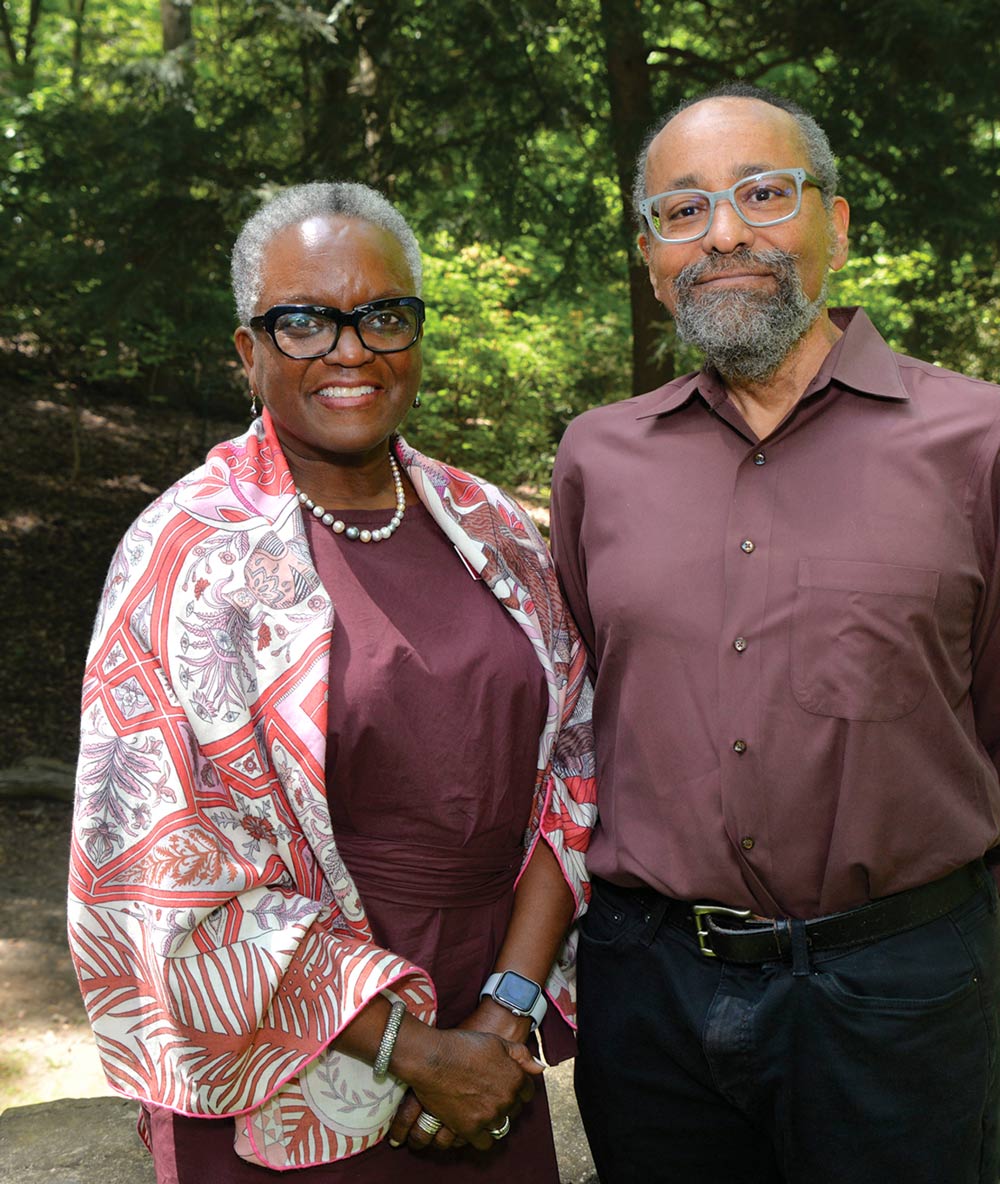
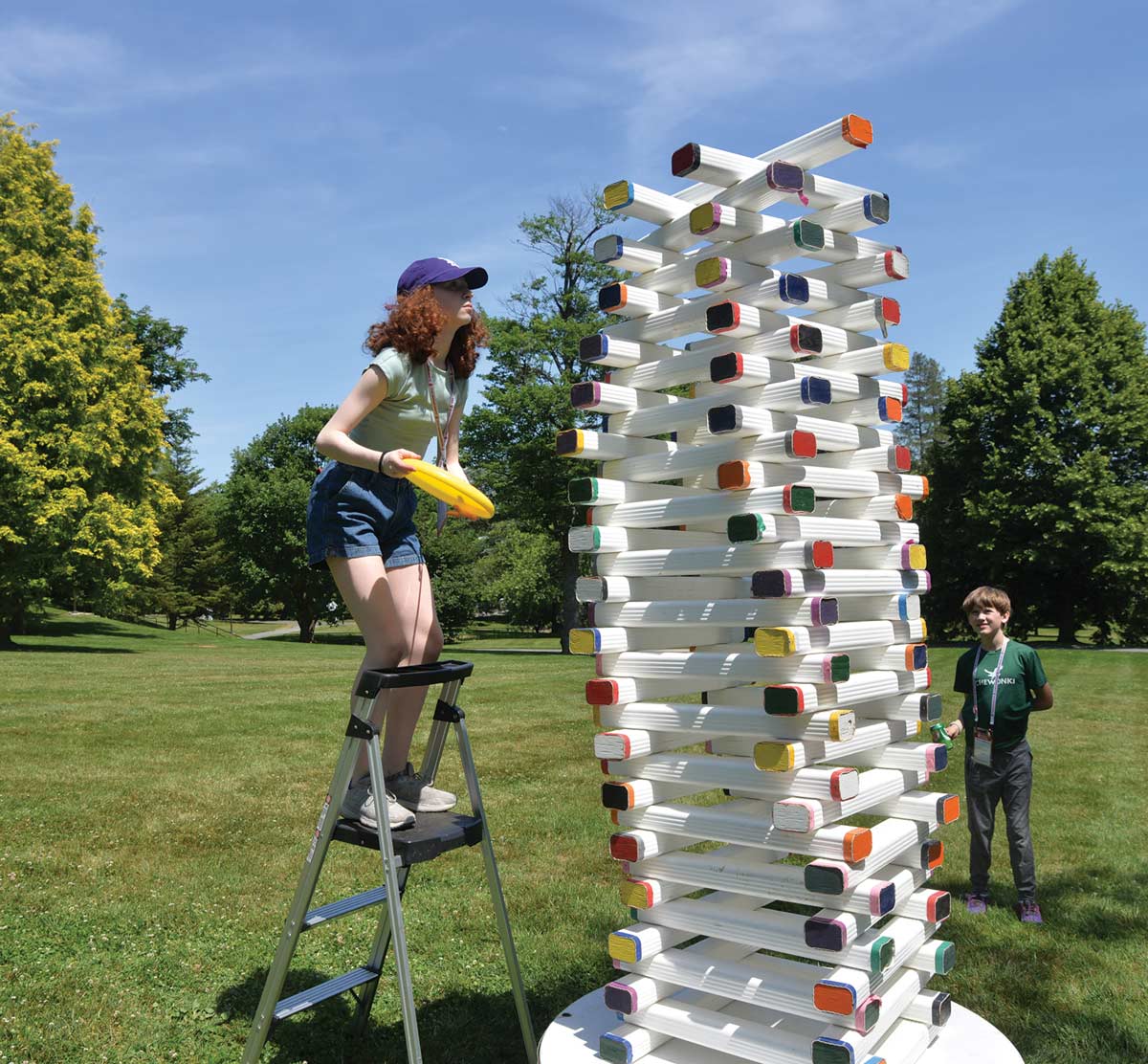

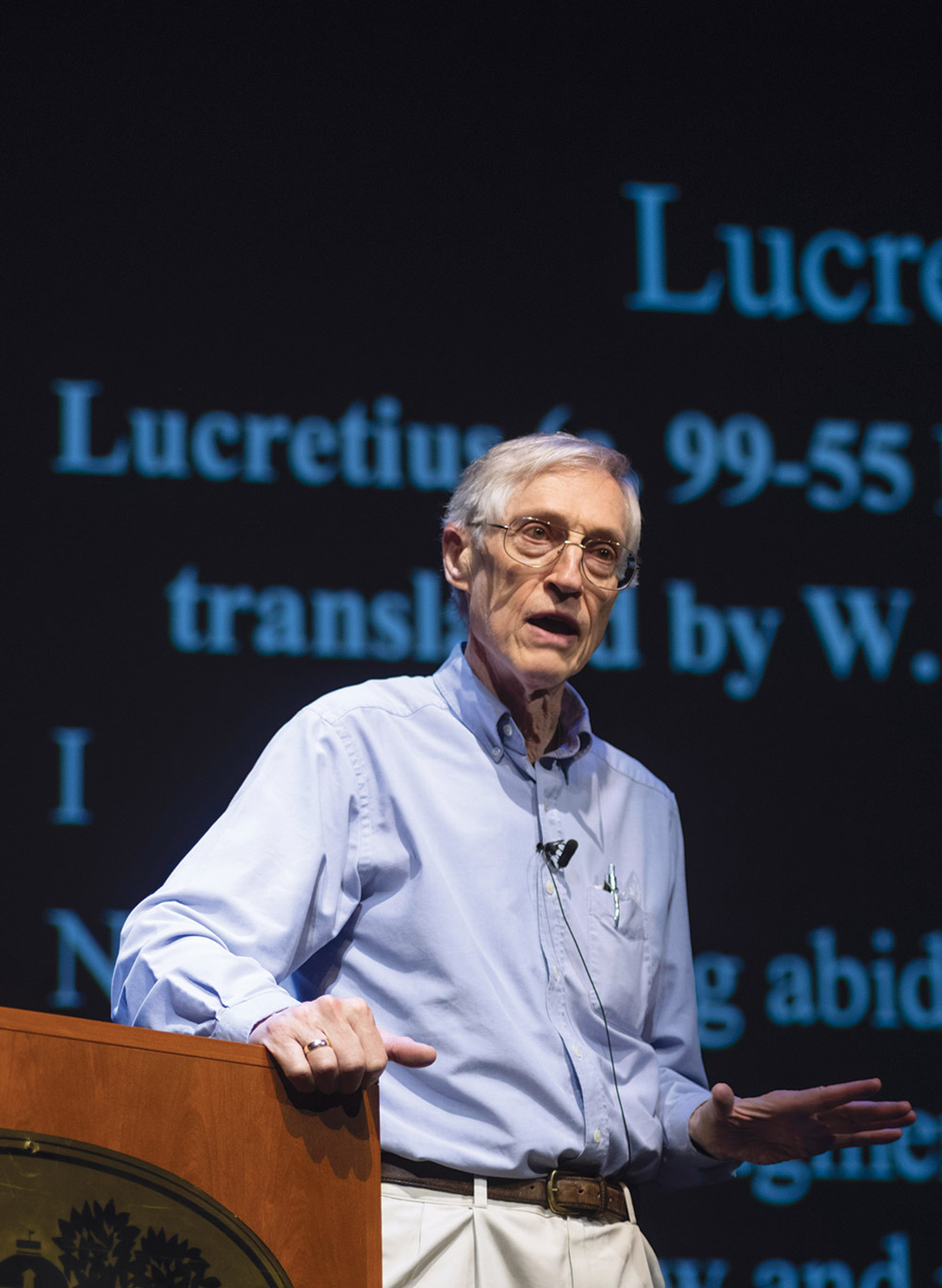
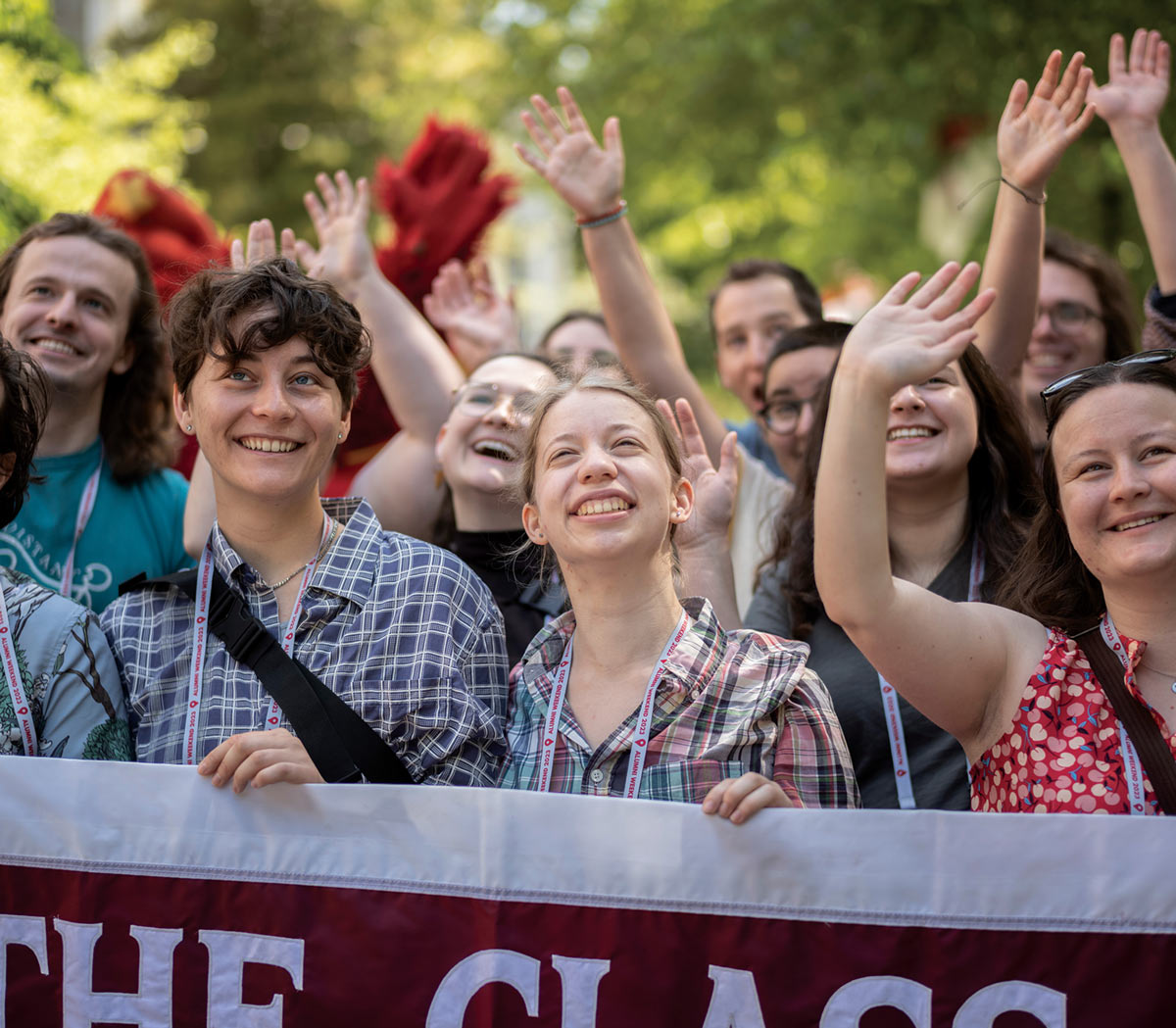
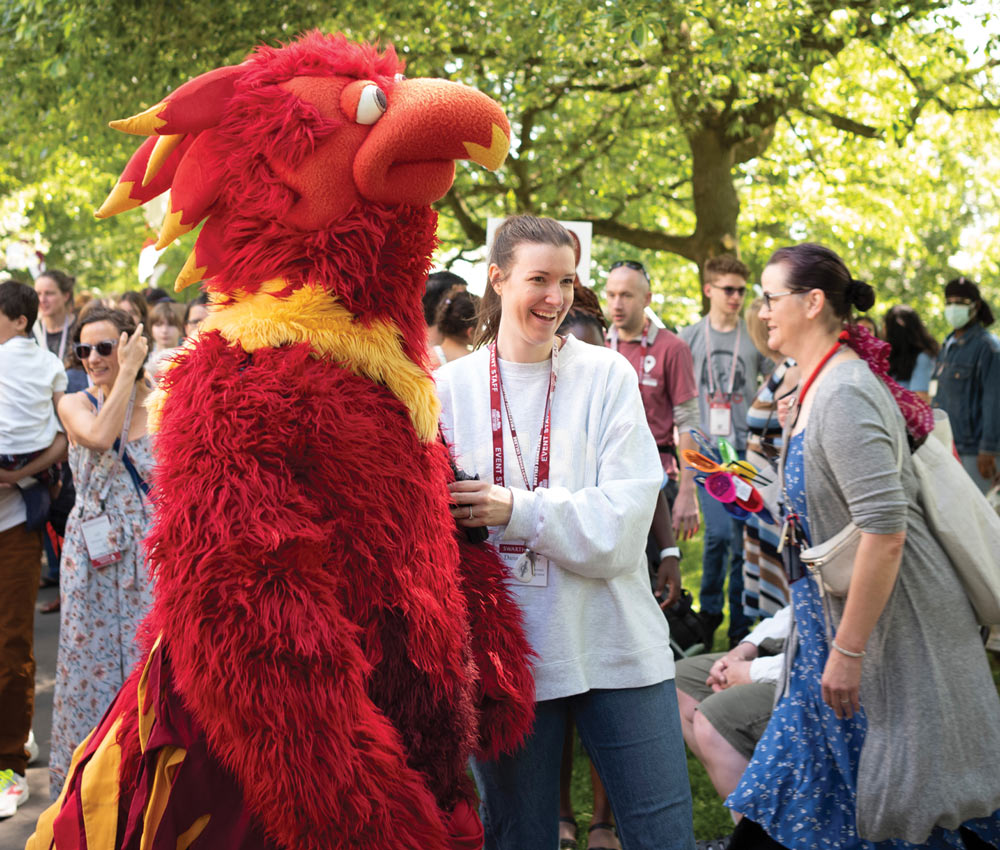
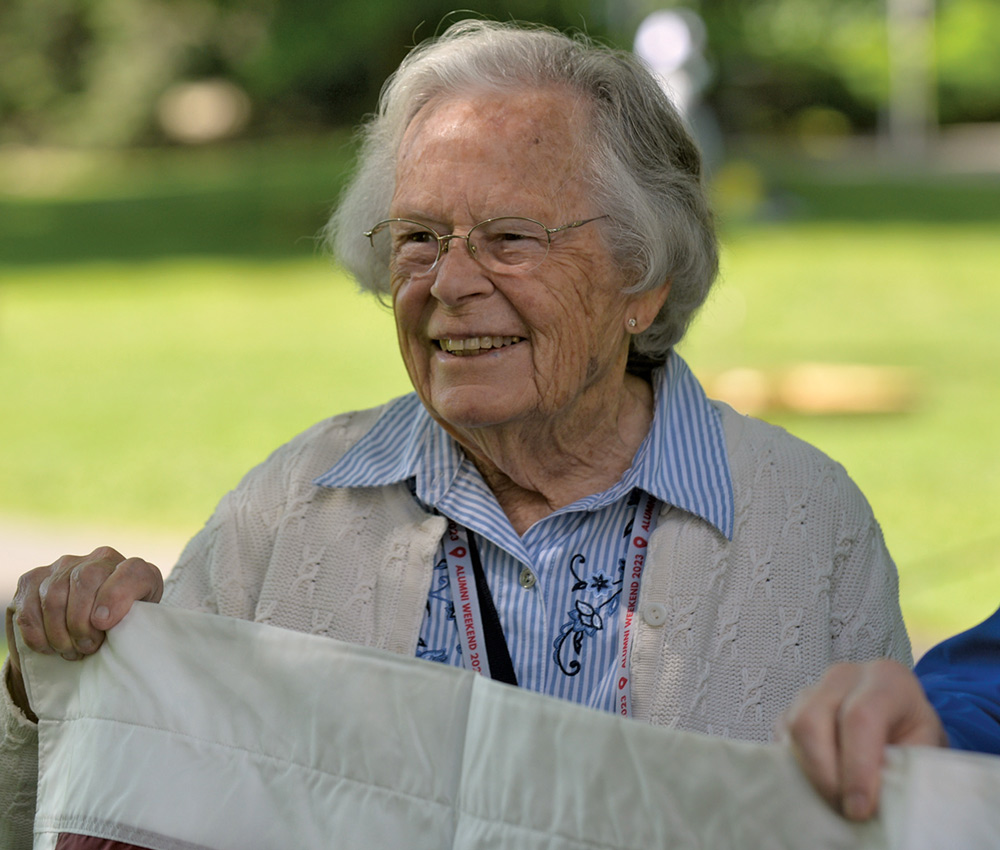
You Were Here!
With perfect spring weather as a backdrop, alumni, families, and friends returned to campus May 25-28 to celebrate Alumni Weekend 2023.
In a year marked by physical changes to campus — from the closing of Sharples and opening of the Dining Center to drilling for our geoexchange system — this year’s reunion theme, “You Are Here,” asked alumni to ponder how their individual Swarthmore stories and experiences remain a foundational part of
Swarthmore’s campus.
Undeterred by construction, over 1,300 guests filled the campus and members of the Classes of 1953 through 2018 took part in the annual Parade of Classes.
Photography by Bob Williams and Laurence Kesterson
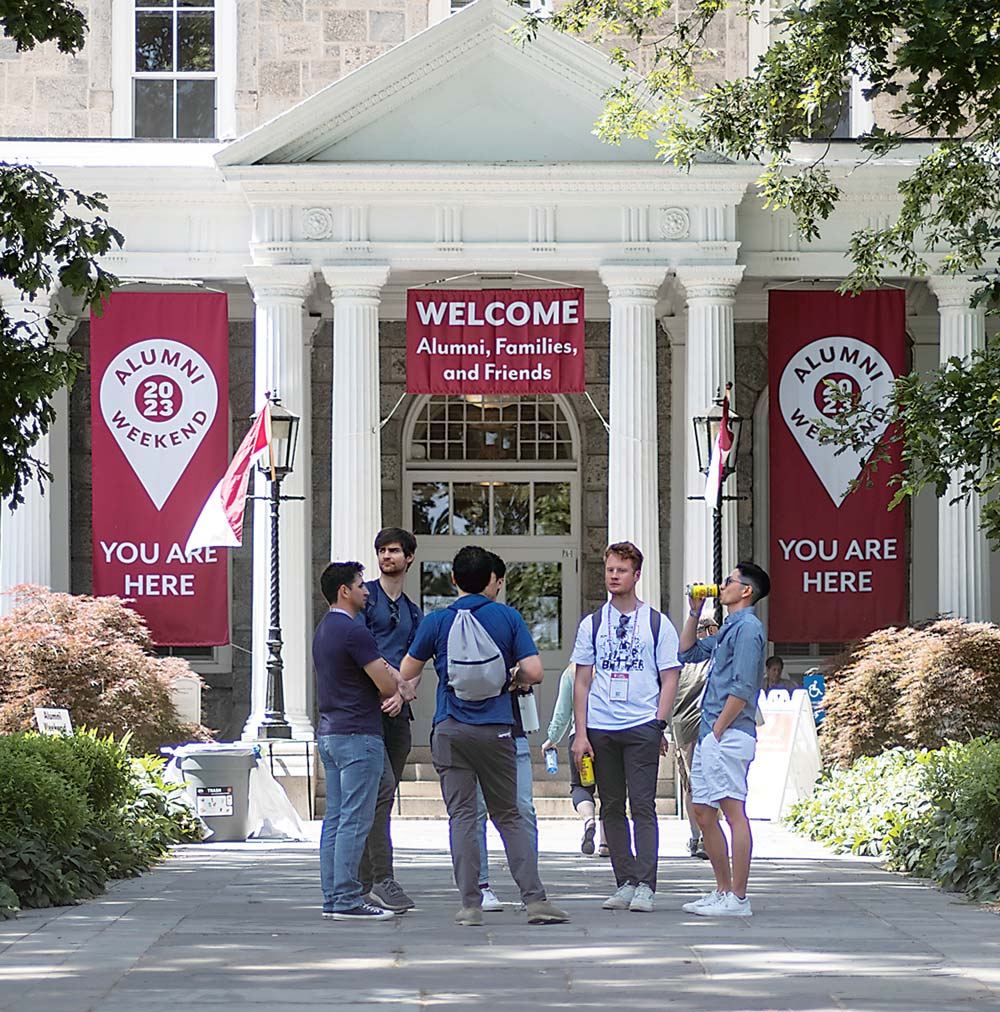
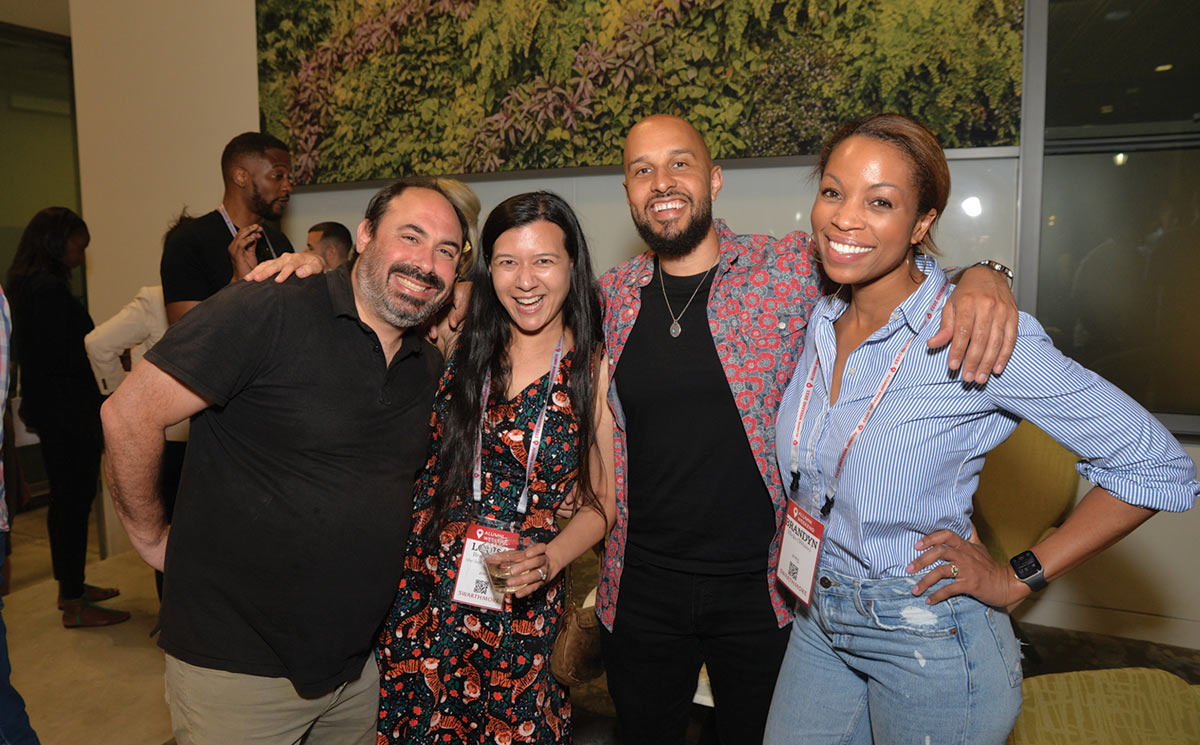
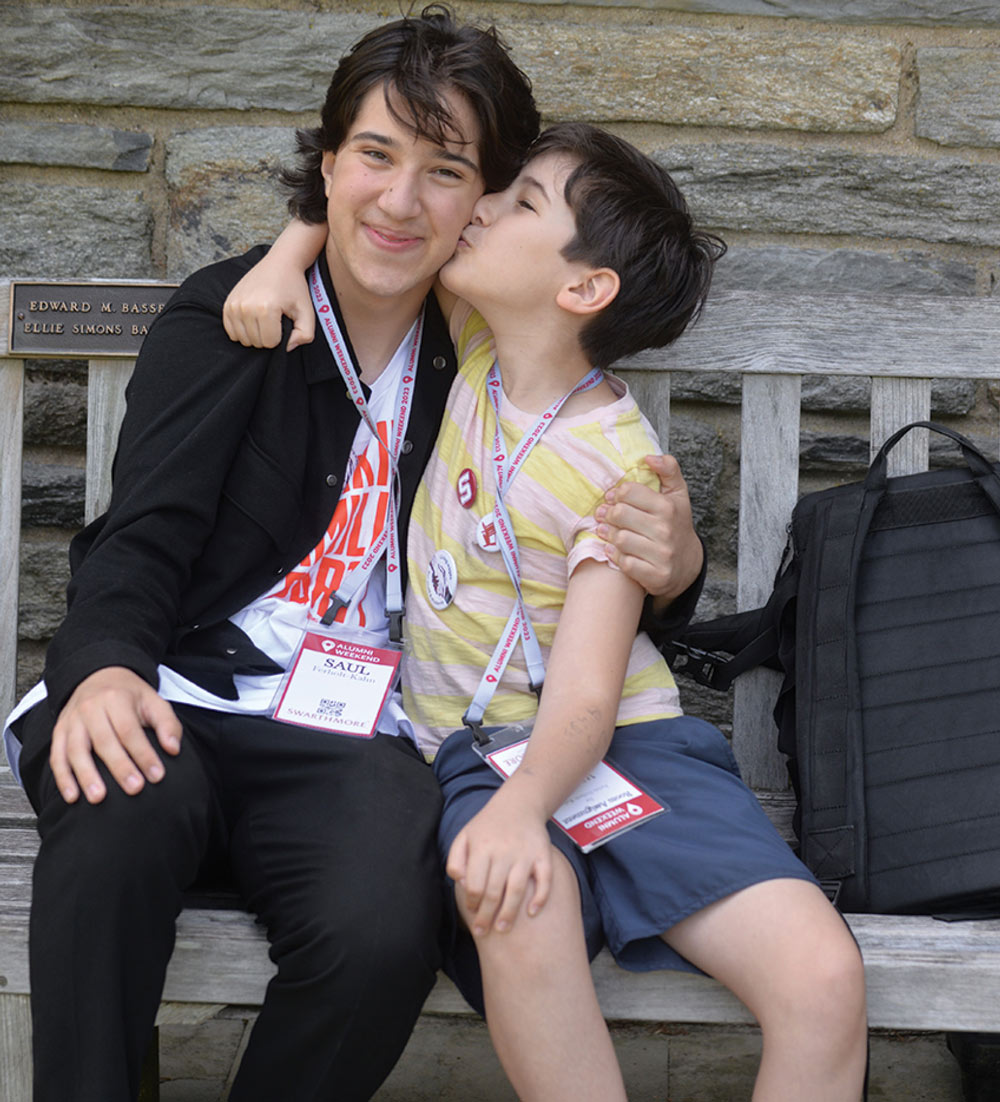
College Responds to U.S. Supreme Court Ruling on Race and Admissions
“We will need time to analyze and fully understand the implications of this ruling. Our colleagues in Admissions have been working with our General Counsel’s Office and outside legal consultants to prepare for this outcome. While we will comply with the law, let me be clear: We will not allow this decision to erode our steadfast commitment to diversity and inclusion.
Swarthmore’s own imperfect history underscores the transformative impact that considering race as one of many factors in a holistic admissions review can have on an institution of higher learning. Living and learning in diverse communities strengthens our collective ability to contribute to a better world, and research has repeatedly shown that diversity on college campuses leads to more meaningful experiences and successful learning outcomes for all students.
As we’ve previously argued in support of race-conscious admissions practices, ‘diversity also generates pedagogical innovations and decreases prejudice.’ Over time, we have developed several successful relationships and programs to increase access to a Swarthmore education, including partnerships with national and local community-based organizations such as Leadership Enterprise for a Diverse America (LEDA), EMERGE, and College Match. We’ve also partnered with QuestBridge and the Coalition for College, organizations that have an express goal of reaching traditionally marginalized students. And we welcome first-generation, low-income, and historically underserved students to visit Swarthmore and gain firsthand insight into college life through programs such as Discover Swarthmore for prospective students and Swatlight for admitted students.
Our financial aid policies and practices also underscore our commitment to making a Swarthmore education accessible to students of all backgrounds. Swarthmore admits domestic students without considering their ability to pay and provides loan-free financial aid packages that meet 100% of a student’s demonstrated financial need, regardless of citizenship status. Other developing initiatives — such as our strategic planning efforts and the creation of a new vice president for diversity, equity, and inclusion position — may also provide new approaches to cultivating a richly diverse campus community. I want to say directly to those of you from historically marginalized communities who may find today’s decision particularly painful — you belong here.
You and your wide-ranging talents, perspectives, and intellectual pursuits are valuable parts of the fabric of the College and the exceptional educational experience that is fundamental to who we are. While we will abide by the Court’s ruling, in the face of challenges to the values integral to who we are, we will persist in fostering a diverse, inclusive community.”

To Zero By Thirty-Five
“We finished drilling the first phase of geoexchange wells!” says Elizabeth Drake, Swarthmore’s director of sustainability.
Over the coming months, the 350 wells will connect to a geoexchange plant, which will be housed in the basement of the new Dining and Community Commons.
It’s a critical component to the College’s commitment to achieving carbon-neutrality by 2035.
The geoexchange system will enable Swarthmore to transition away from fossil fuels and use combustion-free, rewewable power to heat and cool campus buildings.
It works by removing heat from buildings during the summer and storing it deep underground, then reusing it to heat buildings in the winter.
The goal is to have buildings across campus connected to the plant in phases beginning next year, with all connections complete by 2035.
New Board Members


Lia Haskin Fernald ’94 is the Brian and Jennifer Maxwell Endowed Professor in Public Health at the School of Public Health at the University of California-Berkeley. She graduated with distinction from Swarthmore in biological anthropology, and was a Fulbright Scholar in Jamaica. She went on to complete a Ph.D. in nutrition and public health at the University of London and an M.B.A at UC-Berkeley with a focus on health economics.
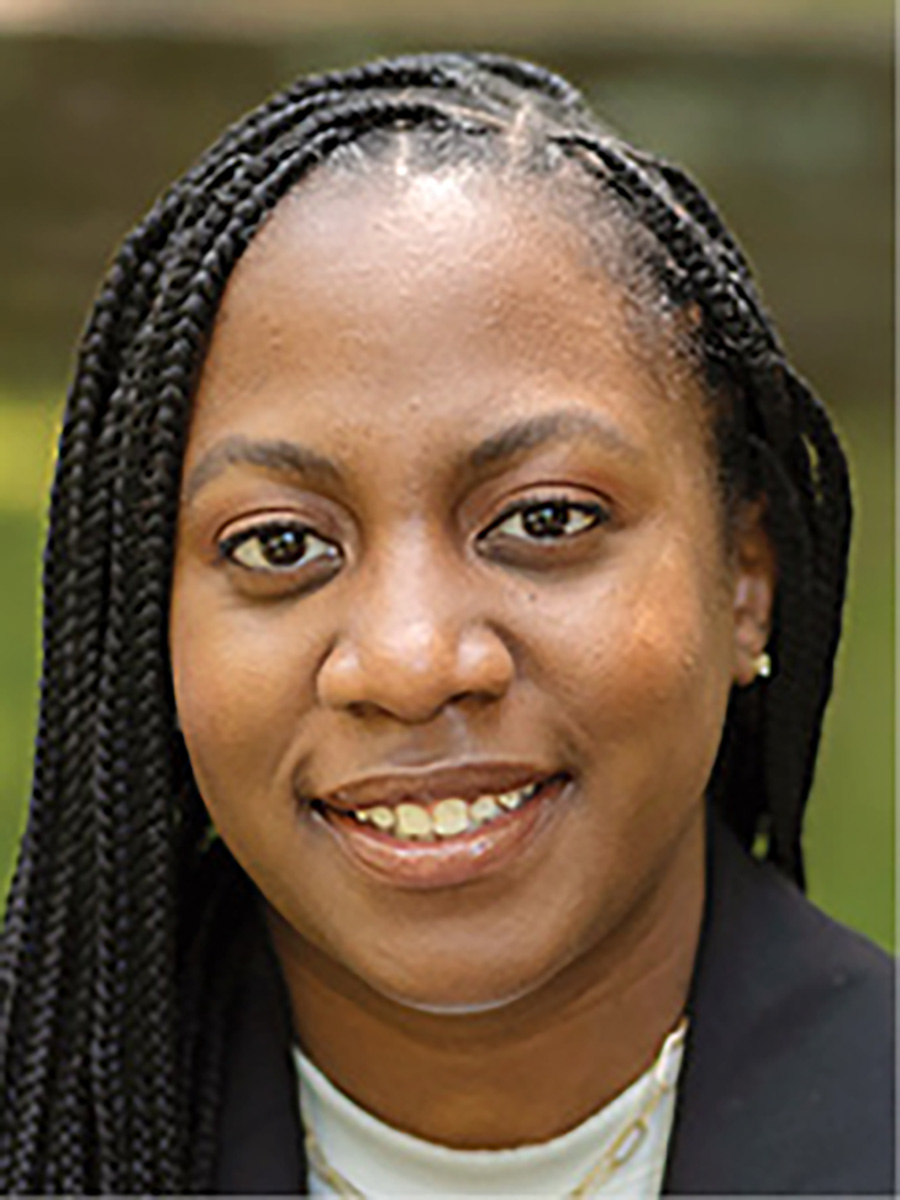

Paul E. Kuenstner ’80 retired as executive director of the Association for Preservation Technology International, where he had worked for four years, in January 2021. Prior to joining APT, Kuenstner had a 19-year tenure as vice president of Fidelity Investments’ Fidelity Foundation.
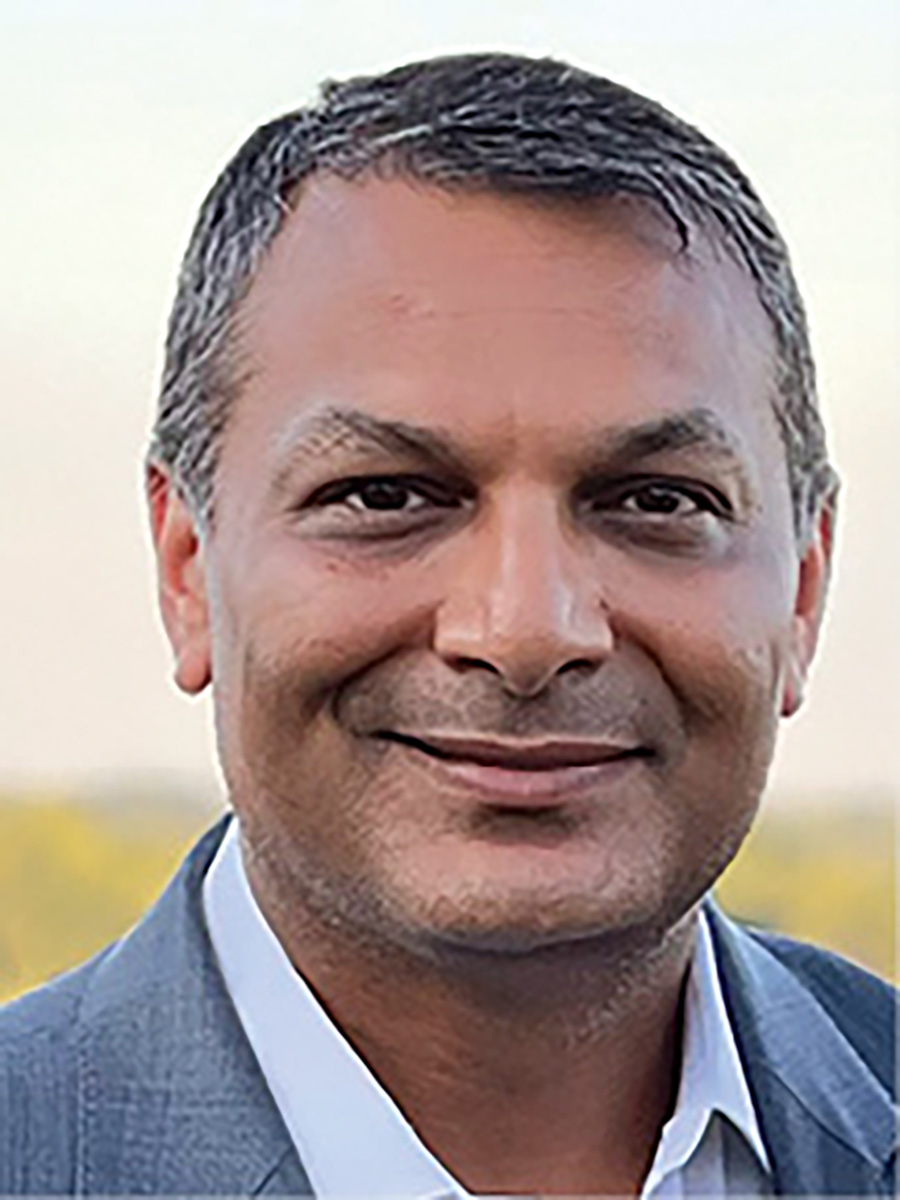
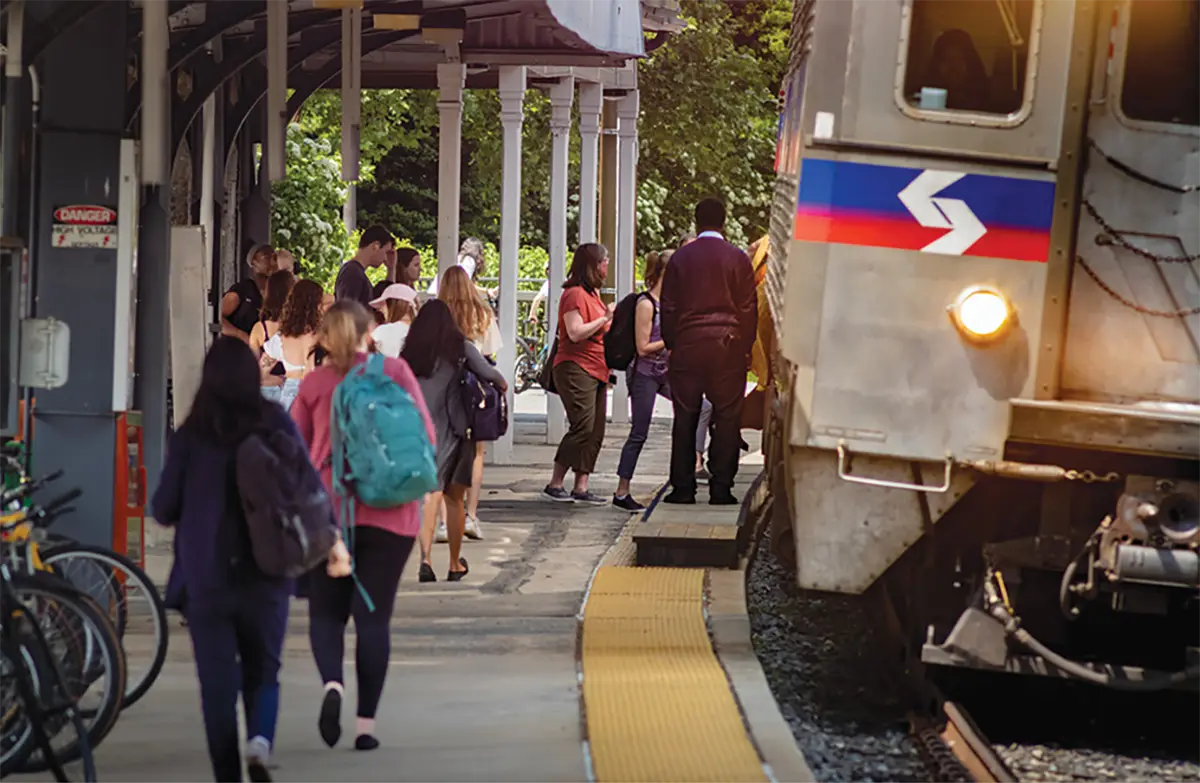
Students Hop Aboard SEPTA
Swarthmore is the first college or university to partner with SEPTA on its Key Advantage UPass Program. The program allows Swarthmore students to use their College-subsidized SEPTA Key Cards 24/7 during the academic year for no charge with a 240-ride limit per month (an average of eight rides per day).
“Our participation in SEPTA’s Key Advantage UPass Program is a chance to not only enhance our students’ living and learning experiences at the College, but also strengthen our commitment to sustainability by encouraging the use of public transportation,” says Anthony Coschignano, Swarthmore’s associate vice president for campus services. The College will also evaluate a possible expansion of the Key Advantage UPass program to College employees.
lgbtq+ education research
New Board Members


Lia Haskin Fernald ’94 is the Brian and Jennifer Maxwell Endowed Professor in Public Health at the School of Public Health at the University of California-Berkeley. She graduated with distinction from Swarthmore in biological anthropology, and was a Fulbright Scholar in Jamaica. She went on to complete a Ph.D. in nutrition and public health at the University of London and an M.B.A at UC-Berkeley with a focus on health economics.


Paul E. Kuenstner ’80 retired as executive director of the Association for Preservation Technology International, where he had worked for four years, in January 2021. Prior to joining APT, Kuenstner had a 19-year tenure as vice president of Fidelity Investments’ Fidelity Foundation.


Students Hop Aboard SEPTA
Swarthmore is the first college or university to partner with SEPTA on its Key Advantage UPass Program. The program allows Swarthmore students to use their College-subsidized SEPTA Key Cards 24/7 during the academic year for no charge with a 240-ride limit per month (an average of eight rides per day).
“Our participation in SEPTA’s Key Advantage UPass Program is a chance to not only enhance our students’ living and learning experiences at the College, but also strengthen our commitment to sustainability by encouraging the use of public transportation,” says Anthony Coschignano, Swarthmore’s associate vice president for campus services. The College will also evaluate a possible expansion of the Key Advantage UPass program to College employees.
lgbtq+ education research
Campus Quickly

Arts and Humanities
Welcome Class of 2027!
Teaching and Learning Commons
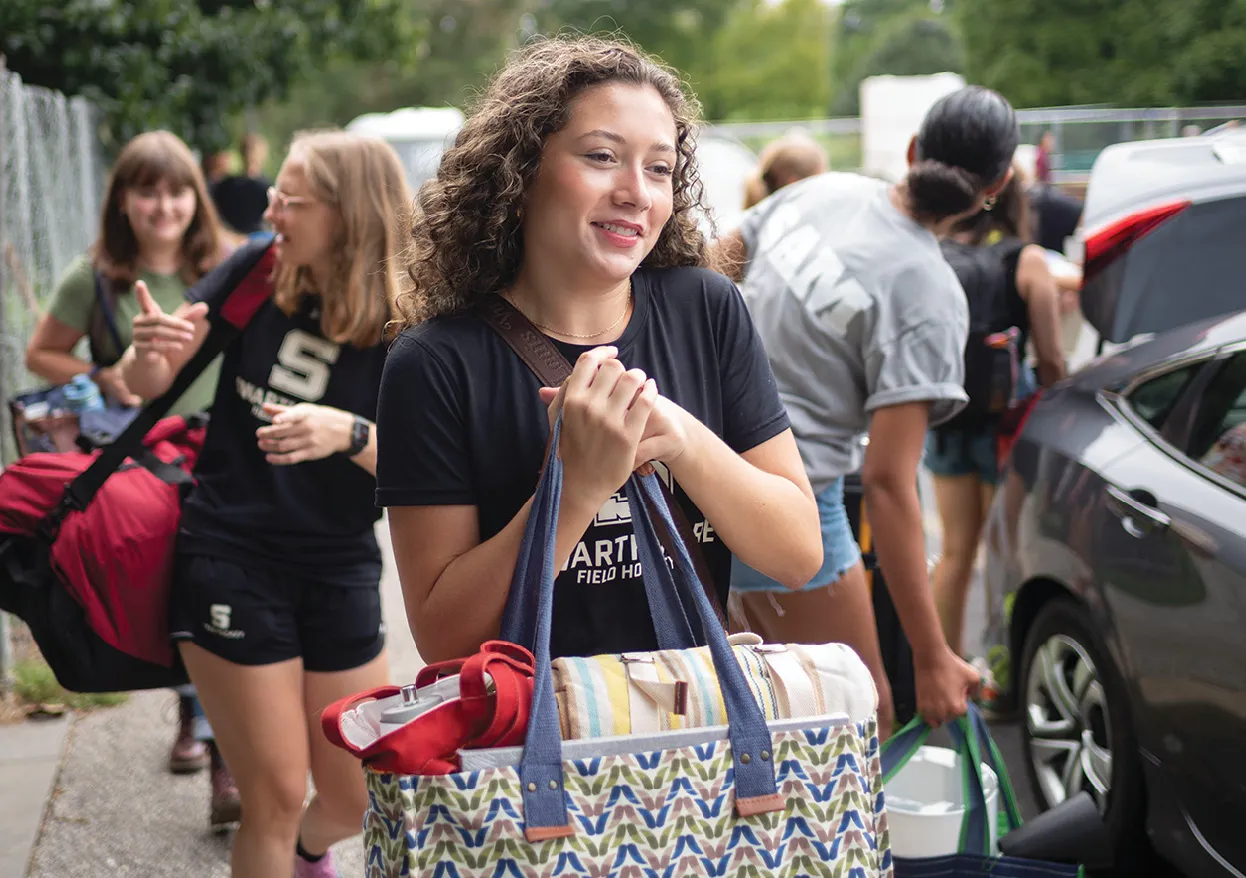
Teaching and Learning Commons


Larry Radloff, d3photography.com
Go Garnet!
Adria Retter ’23 Wins Discus National Title at Outdoor Track & Field Championships
Retter became the second individual-event winner in program history and the first Swarthmore thrower to win a national title. Katie Jo McMenamin ’16 had been the program’s lone national champion after capturing the 1500-meter crown in 2016. — MATT MIZANIN AND ROY GREIM ’14
Garnet Greats: Six Exceptional Individuals Named to Garnet Hall of Fame Class of 2023
A three-time National Soccer Coaches Association of America All-Region selection, Colombo garnered All-Centennial status in all four seasons, while earning Player of the Year honors in her senior campaign. She helped usher in one of the most successful eras of Swarthmore women’s soccer, graduating with program records in goals and career points, while helping the team earn its highest NCAA regional ranking at the time.
During his 50-year career at Swarthmore, beginning in 1941, Holland made a profound impact on the Garnet community. He worked in Environmental Services before joining the Athletics Department as an assistant athletic trainer and equipment manager. Holland also served as a mentor for students, and was particularly impactful for students of color. The Tave Holland Scholarship Fund was established in 2017.
Serving as the head men’s tennis coach for 40 seasons, Mullan retired as one of the winningest coaches in college tennis history. At the helm of the men’s tennis program, Mullan led the Garnet to three national titles, seven MASCAC championships, coached the 1985 NCAA Division III National Doubles Champions, and coached 39 All-America selections. Mullan was named the NCAA Division III Coach of the Year in 1986 and inducted into the Pennsylvania Sports Hall of Fame, Delco Chapter, in 2022.
A two-time National Fastpitch Coaches Association All-Region selection, Riley stands out as one of the greatest players in program history. The two-way talent impressed in the batter’s box and in the pitching circle with a combined nine active program records. She was a four-time All-Centennial first-team selection and was named to the Centennial Conference Silver Anniversary Team. Riley remains active at Swarthmore as an assistant professor of chemistry and an assistant softball coach.
Rowley served as a team captain and key contributor across three sports. He had his greatest success on the lacrosse field, where he garnered a pair of All-America selections. Rowley was also an All-MAC selection in soccer for all four of his seasons. On the basketball court, Rowley led the team in assists for three seasons. He remains involved at Swarthmore as a member of the McCabe Scholarship Selection Committee.
Wilcox arrived at the College as a field hockey midfielder, before transitioning to a goalkeeper. She set records for shutouts and goals against average and helped lead the field hockey team to two Centennial Conference Championships and the program’s only NCAA Tournament appearance. In lacrosse, Wilcox, who was a McCabe Scholar, garnered an All-American selection, a North/South All-Star Team nod, and all-region first-team honors. – MATT MIZANIN
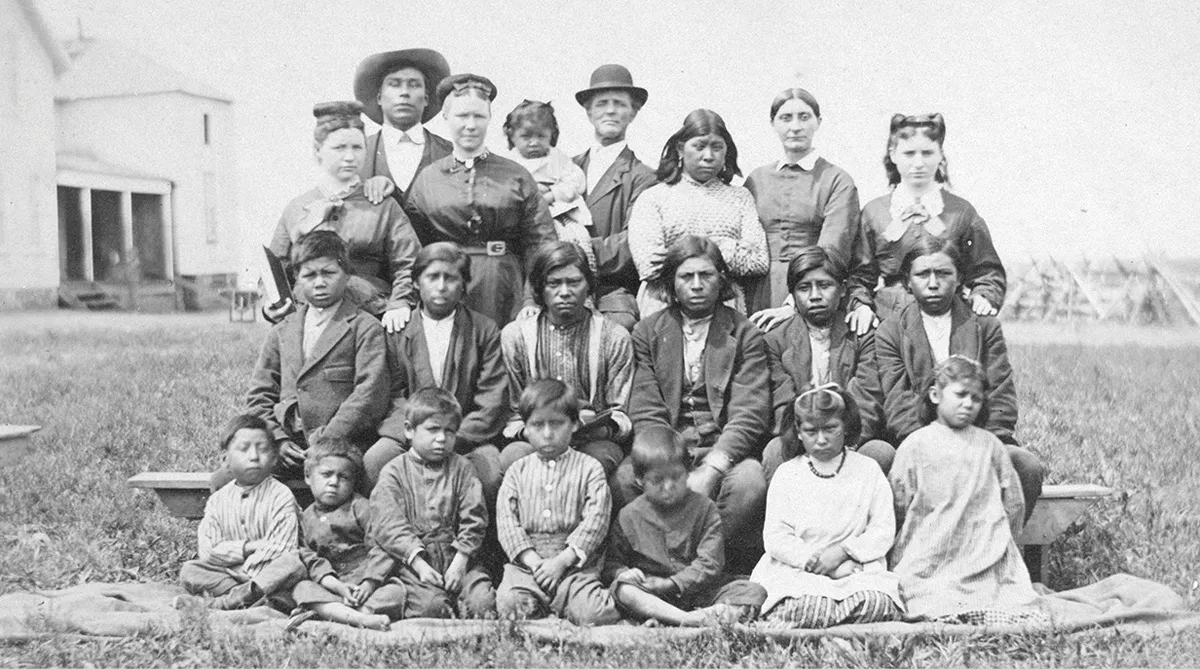
Examining Quaker-Operated Indian Boarding Schools
“We are grateful to Swarthmore and Haverford for their willingness to partner with us as we try to better understand this history,” says Stephen R. Curley (Diné), director of digital archives for NABS. “This partnership is unique and necessary, and we hope it creates more opportunities in the future. It is going to take all communities working together to reveal the truth about Indian boarding schools.” Documents related to Quaker-operated Indian boarding schools have been largely understudied, as they exist in scattered collections with limited access. The records, ranging from 1852-1945, relate to at least nine Quaker-operated Indian boarding schools that were located in Indiana, Kansas, Nebraska, New York, Ohio, Oklahoma, and Pennsylvania.
“I hope this partnership opens the door for more discussion and understanding about religious institutions’ role in the operation of Indian boarding schools,” says Celia Caust-Ellenbogen ’09, associate curator for Friends Historical Library of Swarthmore College. “These records can inform us about the conditions in which Native students lived, how Quaker institutions were financed through the federal government, and reveal the motivations behind U.S. assimilation policy design.”
Following the scanning process, an information session will be held with Native communities to discuss the project findings. The project will also include the production of a video that shares oral histories from boarding school survivors, their families, and others.
Plastic, We Have a Problem
Associate Professor of Economics Syon Bhanot and University of Pittsburgh Economics Ph.D. candidate Daniel J. Banko-Ferran ’17 teamed up with the City of Philadelphia to try to better understand the impact of the ban on plastic use.
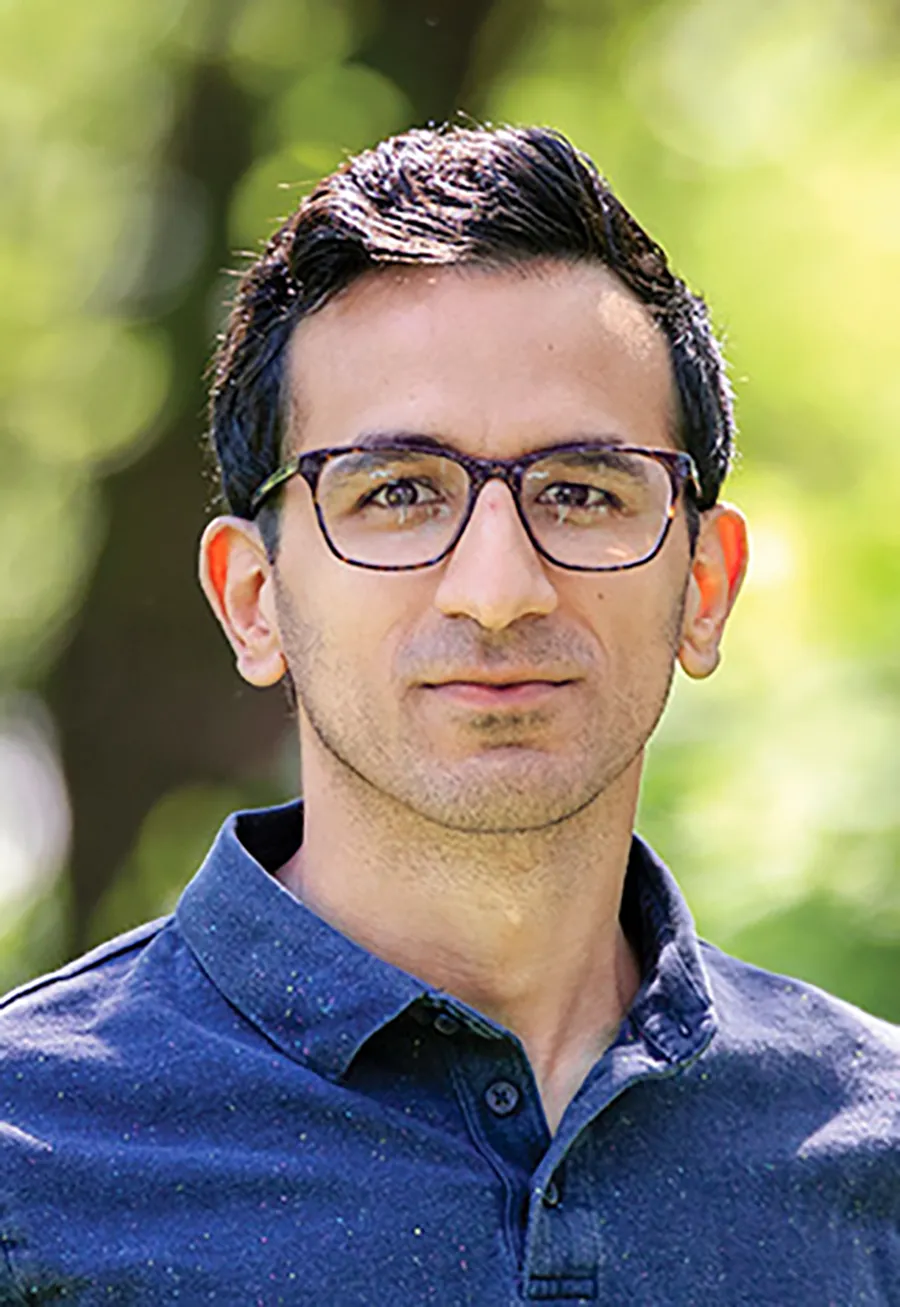
“It’s not really that big of a sacrifice to use a reusable bag, but I think that change can be frustrating,” says Bhanot. “My sense is that people will basically get annoyed for two minutes, but ultimately just stick some bags in their car, and then adjust to that new situation.”
It may also be the case that the next generation will be different. Bhanot suspects that “kids will just get used to bringing bags, and the next generation will just become used to doing things a little differently.”
Bhanot has been working with the Philadelphia mayor’s office on policy since 2013, using behavioral science to develop interventions addressing public policy issues, like combating litter. — MADELEINE PALDEN ’22
Lives Well Lived
Ray is remembered as a prolific and internationally influential scholar and pioneer in the study of world food policy whose generosity and love for teaching endeared him to students and colleagues alike.
“Ray was a superb scholar of international political economy who reached beyond the academy, shaping food policy at the United Nations, the World Bank, and elsewhere,” says Professor and Chair of Political Science Dominic Tierney. “He was also a wonderful presence in the department: He cared passionately about students, had a great sense of humor, and always had a twinkle in his eye.”
“At a time when many viewed international institutions and governance as weak and peripheral to the major issues of politics in the 20th century,” says Richter Professor of Political Science Tyrene White, “Ray Hopkins stood out for his consistent and determined focus on the international food aid regime and its potential for addressing persistent problems of hunger, famine, and food distribution systems.”
“I loved discussing these issues with Ray, but I best remember him as a wonderful colleague and teacher,” says William R. Kenan Jr. Professor Emeritus of Political Science Ken Sharpe. “Ray was always willing to soothe and solve conflicts and to brainstorm solutions for conundrums we faced. He was empathetic and compassionate when dealing with sensitive student issues. That stance came from the deep caring he had for them.”
Over his career, Hopkins authored, co-authored, or edited seven books, including Global Political Economy of Food (University of Wisconsin Press, 1978), Global Food Interdependence: Challenge to American Foreign Policy (Columbia University Press, 1980), and Food in the Global Arena: Actors, Values, Policies, and Futures (Holt, Rinehart, and Winston, 1982).
He also published more than 60 academic articles and several dozen book reviews, and delivered more than 40 papers at professional conferences.
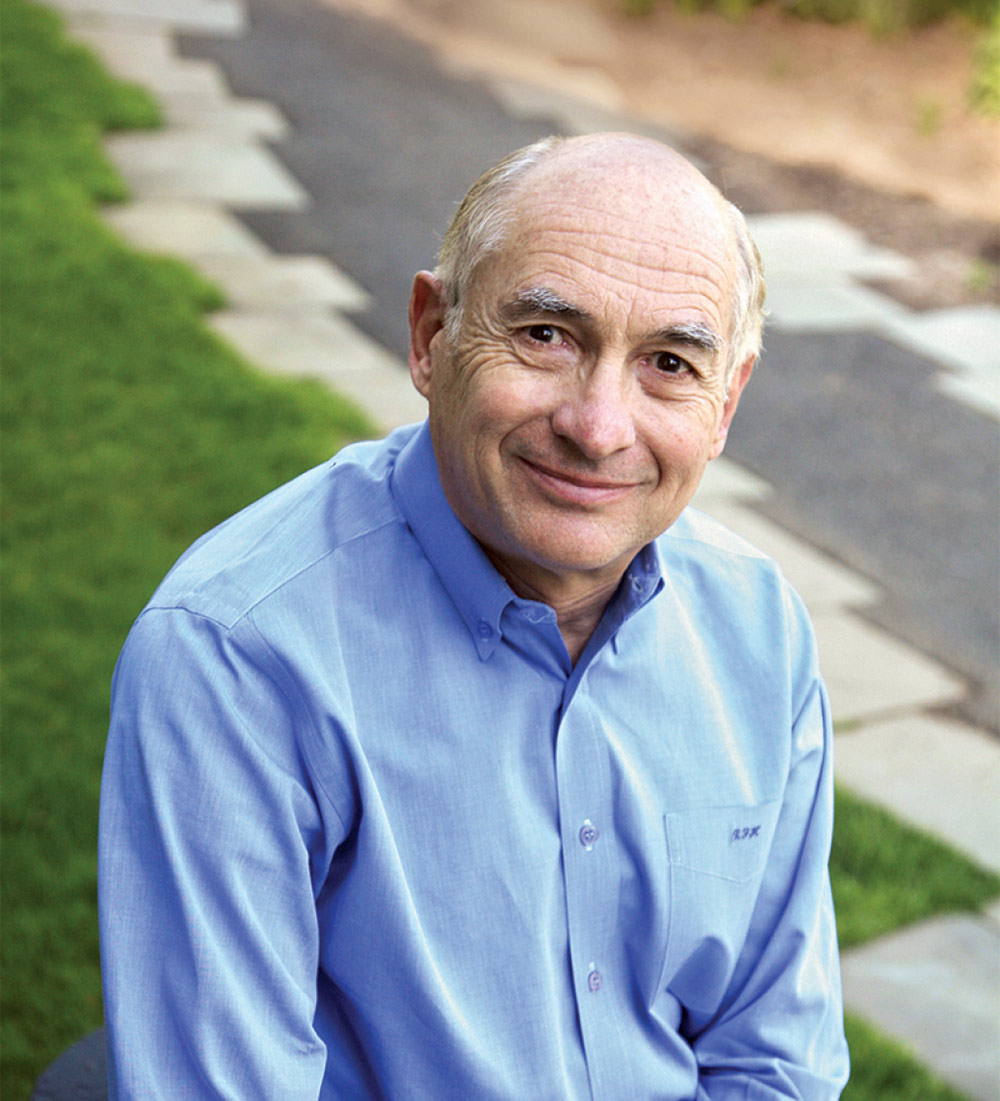
Talbot, a former longtime director of financial aid, died March 16, 2023. She was 69.
G. Holger “Hogie” Hansen
Hansen, associate vice president from 1976–80, died May 27, 2023. He was 86.
Eileen McElrone
McElrone, an administrative assistant for more than 25 years, died April 3, 2023. She was 74.
Bridget Rothera
Rothera, administrative assistant in the computer science department for more than 16 years, died May 24, 2023. She was 63.
Ethel Rudisill
Rudisill, a former assistant to the chair of the athletics department, died July 18, 2023. She was 76.
Dave Ruel
Ruel, who managed administrative information systems, died June 8, 2023. He was 68.
Robert L. Warren
Warren, an officer for public safety for 20 years, died May 21, 2023. He was 53.
Dorothy Wolfe
Wolfe, who taught Math for two years at the College, died April 5, 2023. She was 102.